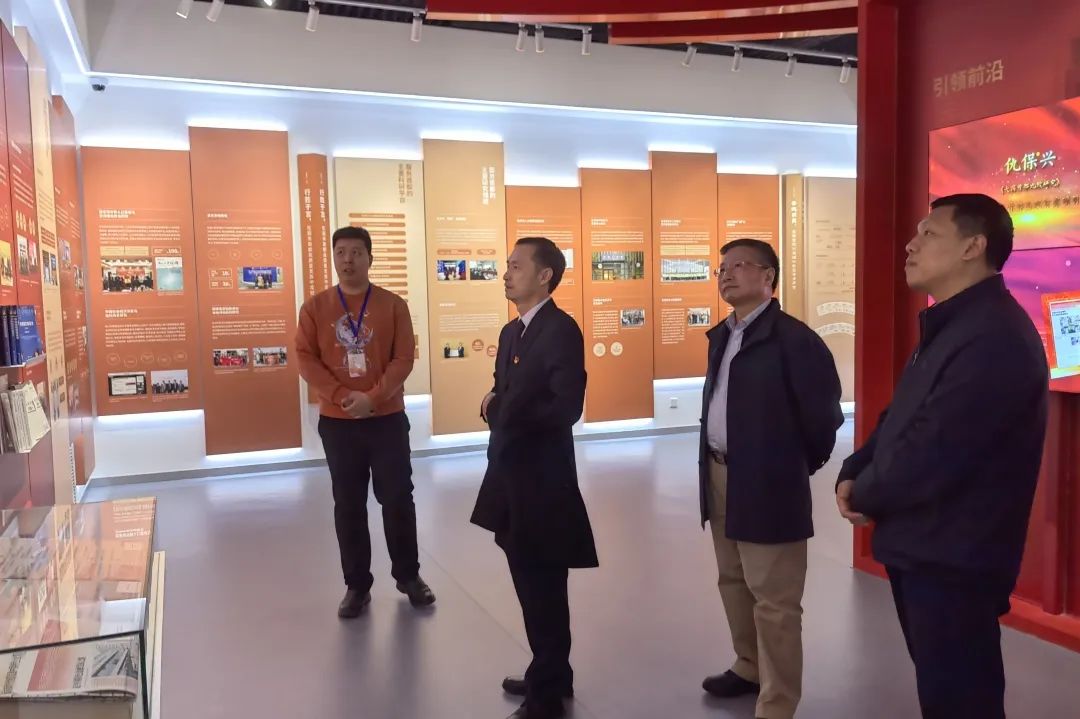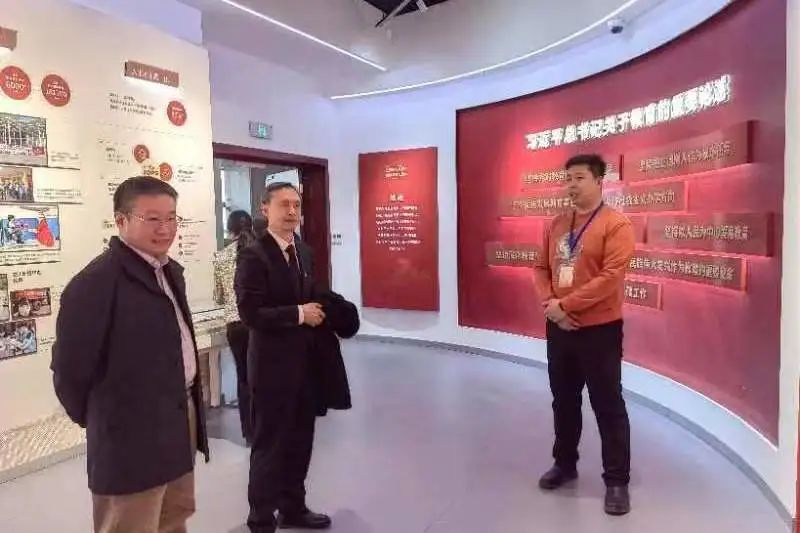Museum of the War of Chinese People's Resistance Against Japanese Aggression and CUEB Jointly Build the "Broader Ideological and Political Education" Base
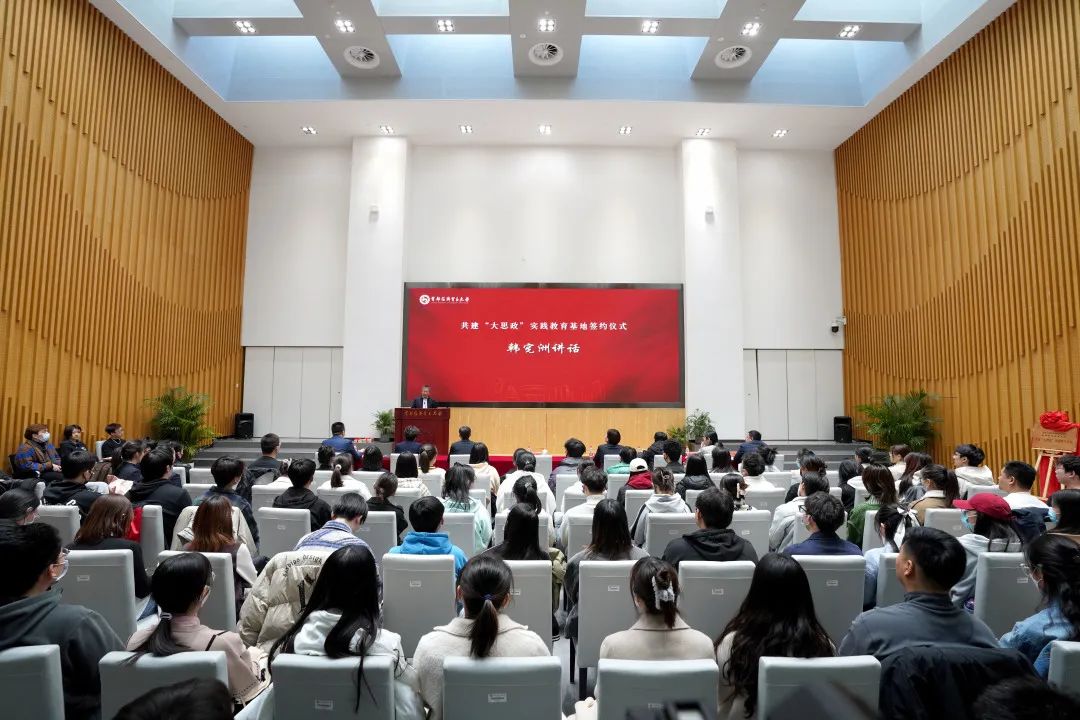
On the afternoon of March 15, the signing ceremony for CUEB and the Museum of the War of Chinese People's Resistance Against Japanese Aggression (hereinafter referred to as the “Anti-Japanese War Museum”) to jointly build “Broader Ideological and Political Education” base and the publicity for the 20th CPC National Congress spirit in universities was held in the Press Room of Boyuan Building. Dong Lixin, Deputy Party Secretary of the Party Committee of the Anti-Japanese War Museum and Han Xianzhou, Party Secretary of CUEB attended the ceremony and made a speech. Anti-Japanese War Museum Social Education Ministry Director Yao Qiuxia, Deputy Director of the Office Yang Xin, CUEB Party Committee Publicity Department Administrative Vice Minister Fu Lin, Communist Youth League Secretary Li Xiaoou, General Party Secretary of School of Marxism Studies Wang Yin and members of the publicity for 20th CPC National Congress spirit of the Anti-Japanese War Museum, student party representatives and student volunteer representatives attended the ceremony. The ceremony was presided over by Wang Jinbao, Minister of the Student Affairs Department of the Party Committee.
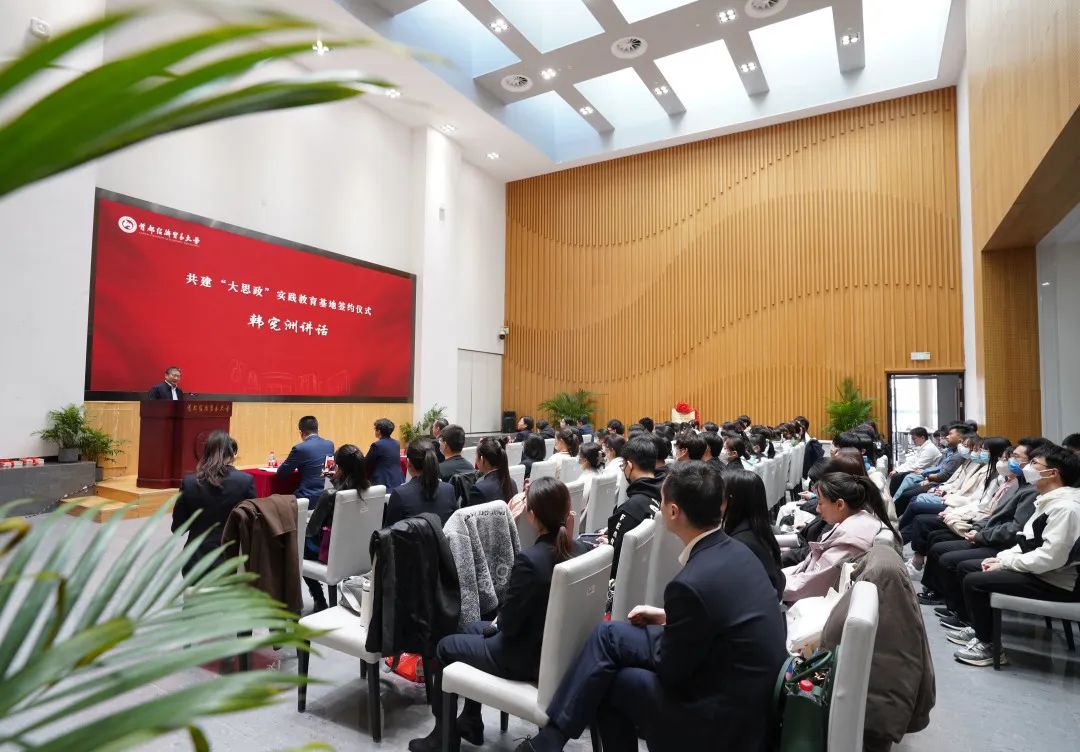
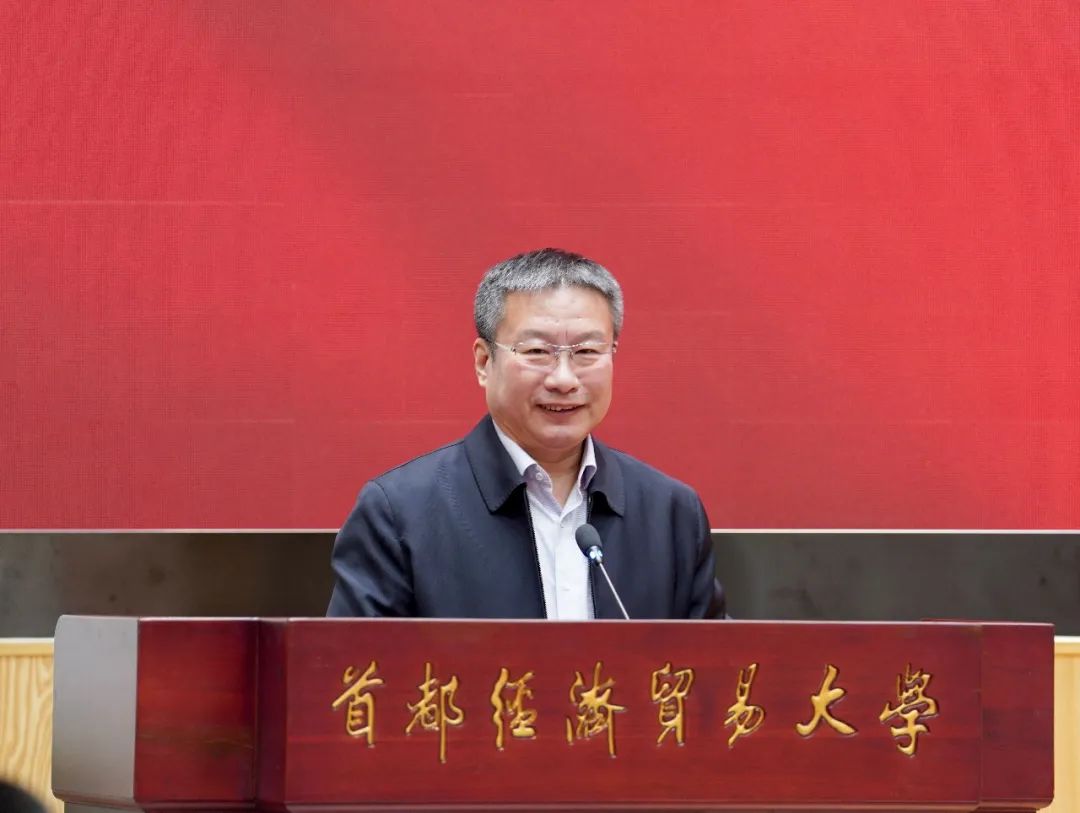
In his speech, Han Xianzhou expressed his welcome and gratitude to the leaders and comrades of the Anti-Japanese War Museum who came to the signing ceremony. He pointed out that on the occasion of the 4th anniversary of General Secretary Xi Jinping's important speech at the symposium for teachers of ideological and political courses, jointly building the “Broader Ideological and Political Education” base is important for a deep understanding of General Secretary Xi Jinping’s significant speech made on March 18, 2019, and the implementation of Xi's important instructions to make good use of "Broader Ideological and Political Education" resources. Fengtai District boasts of two revolutionary sites (Site of February Seventh Strike at Changxindian and Lugou Bridge) with rich red culture. Located in the district, CUEB has great geographical advantage in the inheritance of revolutionary spirit. In 2021, CUEB signed a co-construction agreement with February 7th Changxindian Memorial Hall to set up the “CUEB Ideological and Political Education Base”. Today, we work together with the Anti-Japanese War Museum to build a high-quality education platform, which shall better combine ideological and political education with practical activities, introduce revolutionary resources into campus and integrate revolutionary spirit into classroom. Han Xianzhou pointed out that in joint construction, we should focus on integrating rich revolutionary resources into the new pattern of "Broader Ideological and Political Education", empowering the ideological and political work of CUEB, and meanwhile, we will promote the inheritance of the great spirit of Anti-Japanese War with personnel resources in colleges and universities, so as to improve the collaborative education effect, and create a new pattern of practical education.
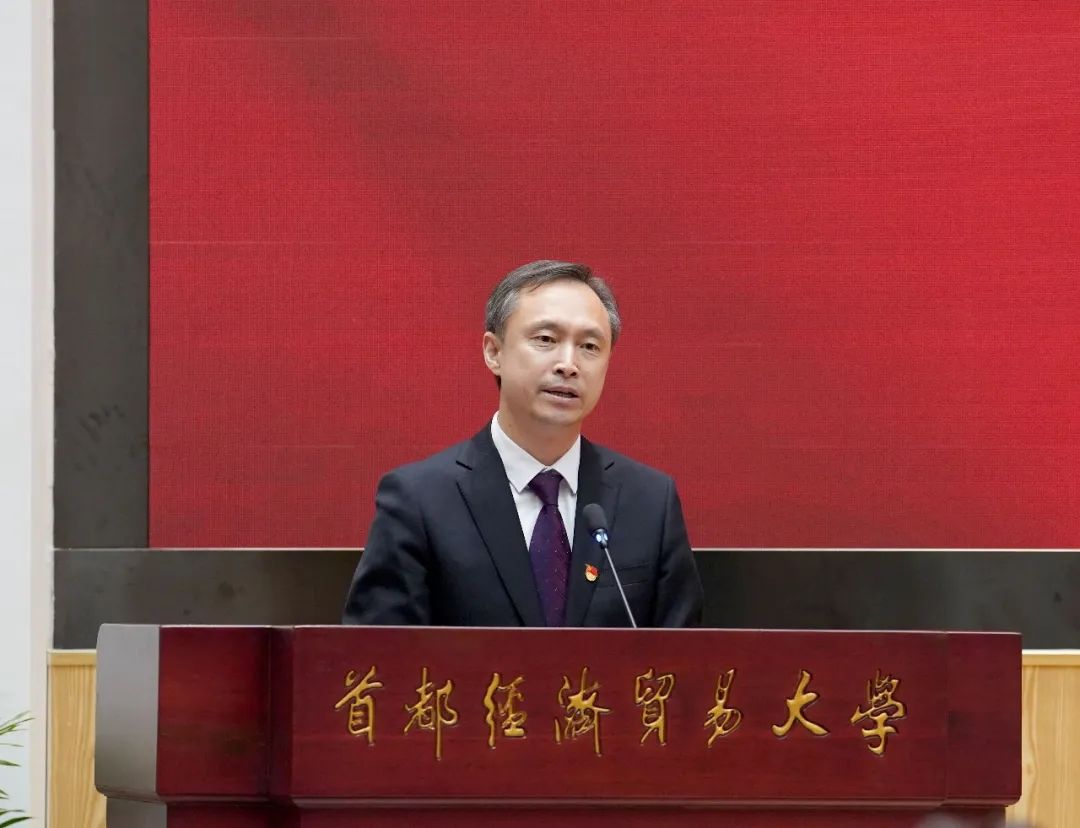
Dong Lixin said that this cooperation is of great significance and has great prospects. It is not only an important starting point for colleges and universities in the capital to consciously make good use of red resources with historical consciousness, strengthen practical education and inherit revolutionary spirit, but also an effective measure for the Anti-Japanese War Museum to actively meet the needs of universities, give full play to its own resource advantages, and promote the normalization and long-term effect of Party history education. This cooperation transforms the pattern from “what I can do and what you can do” into “what we can do together”. We cannot build a new pattern of “Broader Ideological and Political Education” without the nourishment of the history of the Party and the country, the inspiration of heroes and martyrs, and the responsibilities for our country. In the future, the Anti-Japanese War Museum and CUEB will forge ahead with courage and innovation to write a new chapter in the high-quality development of cooperation. Two sides will uphold “one goal” of carrying forward the spirit of the Anti-Japanese War to develop collaborative education; establish “two sites” (National Anti-Japanese War Memorial Hall and “Broader Ideological and Political Education” base); and carry out “six activities”, including conducting Party lectures and activities that make students remember the Anti-Japanese War, study the history of the Party and enhance Party consciousness, developing courses with the great spirit of Anti-Japanese War in education, holding choral performances that inherit the theme of a play called “Literature and Art in the Anti-Japanese War”, organizing students to visit the exhibition on Beijing’s Resistance Against Japanese Aggression on holidays, encouraging them to share revolutionary stories via “We media”, and convening volunteers to explain the history.
In the witness of Dong Lixin, Yang Xin, Wang Jinbao and Li Xiaoou, Yao Qiuxia on behalf of the Anti-Japanese War Museum, and Fu Lin on behalf of CUEB, sign a joint construction agreement.
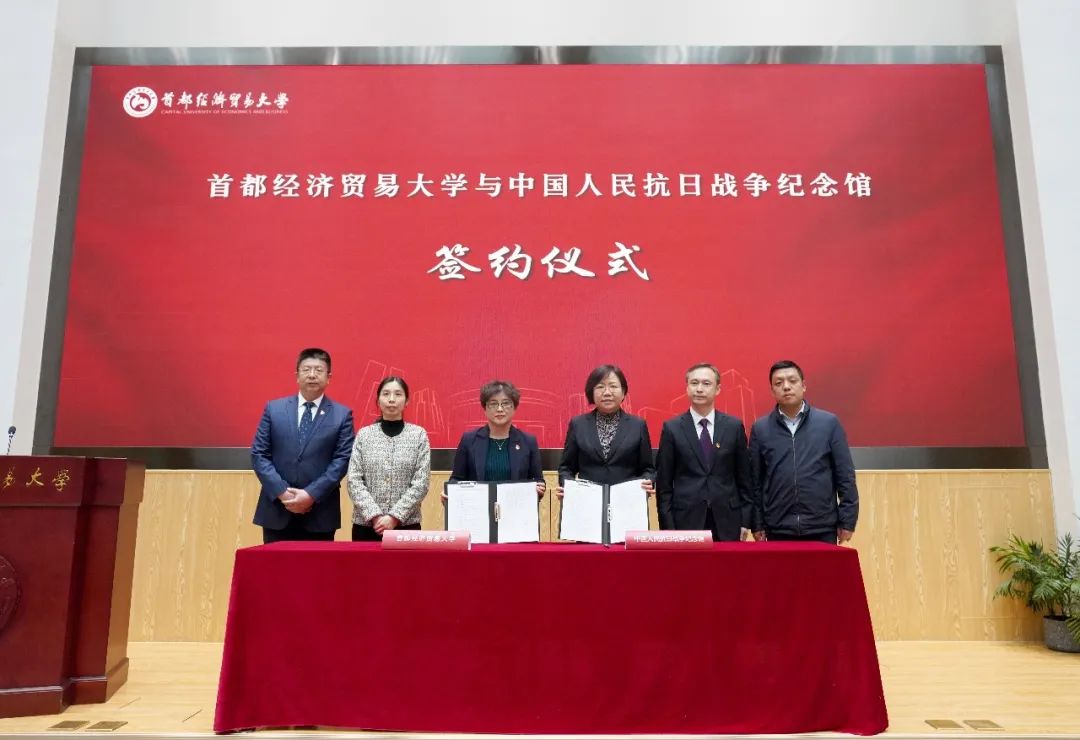
Han Xianzhou and Dong Lixin unveil the Base.

Subsequently, members for the publicity of the Party's 20th National Congress spirit of the Anti-Japanese War Museum gave wonderful publicity. Relying on revolutionary stories and revolutionary poems, the publicity group told the story with deep feelings and moving reading, combining the 100-year struggle of the Party with the great changes since the 18th National Congress of the Communist Party of China, so that teachers and students could deeply understand the decisive significance of “two establishment”(i.e. establishing Comrade Xi Jinping's position as the core of the Party Central Committee and the core of the whole Party, and establishing the guiding position of Xi Jinping Thought on Socialism with Chinese Characteristics for a New Era). Through the publicity, teachers and students were able to know the glorious deeds of revolutionary heroes, such as Zhao Yiman, Mao Anying, Zuo Quan, and Liu Zhilan, which cheered them up. They also had a deeper understanding of a series of achievements in politics, theory and practice made by the 20th National Congress of the Communist Party of China, and deeper understanding of major issues such as Xi Jinping Thoughts on Socialism with Chinese Characteristics for a New Era, adapting Marxism to the Chinese context and the needs of our times and Chinese modernization.
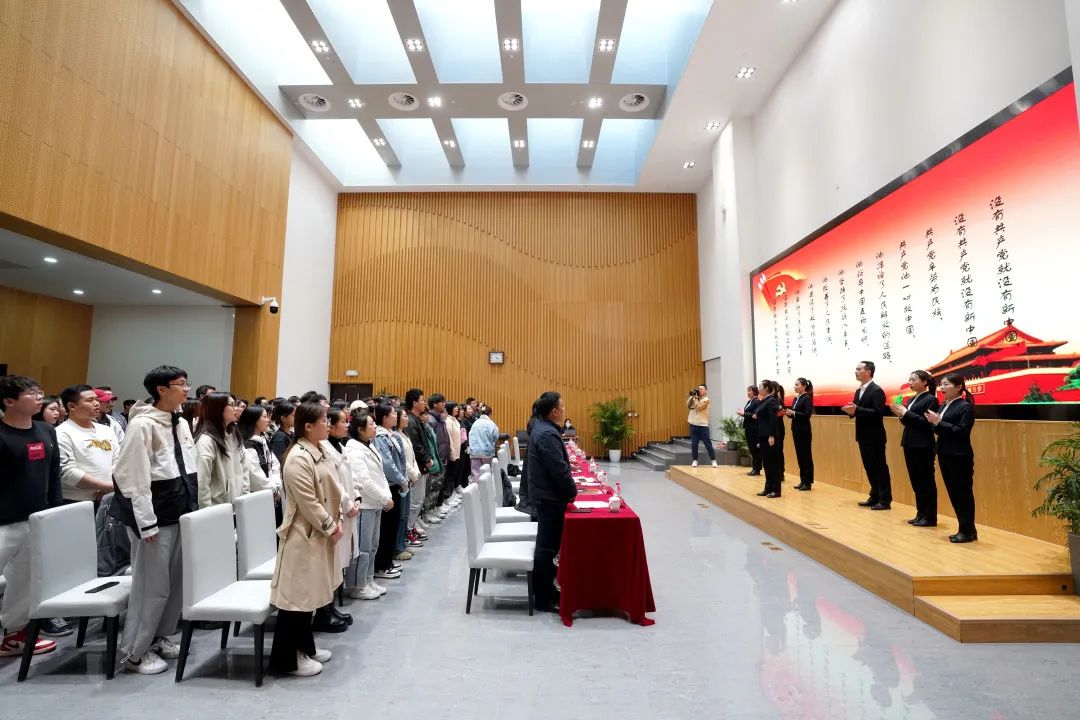
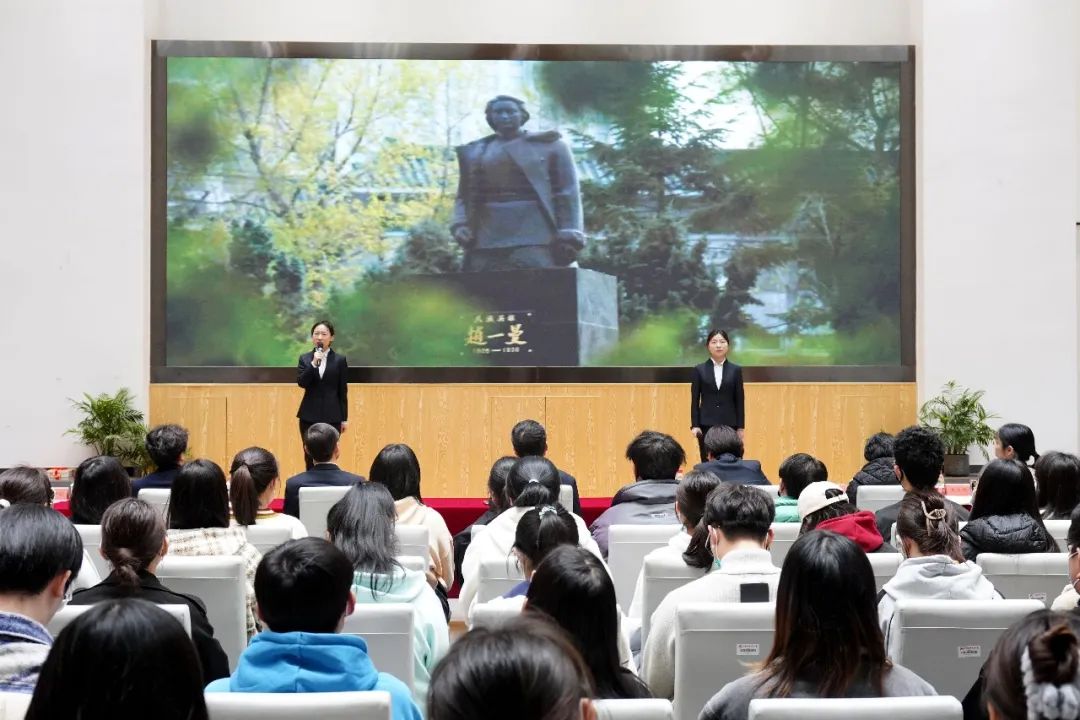
After the publicity work told the story about Cao Huoxing’s music composition, the audience sang "Without the Communist Party, There Would Be No New China". The sonorous singing, full of loyalty and love to the Party and the country, conveyed the deep feelings for home and country, pushing the atmosphere to a climax.
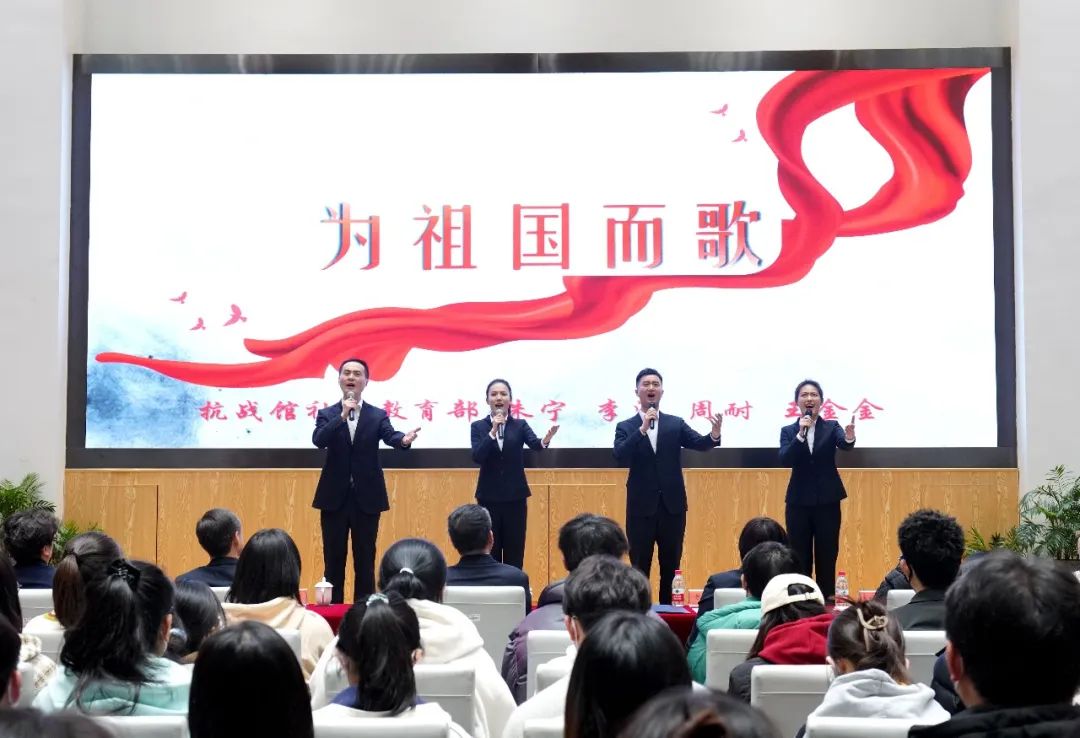
After the publicity, Dong Lixin, Yao Qiuxia and Yang Xin present Anti-Japanese War books to the student representatives.
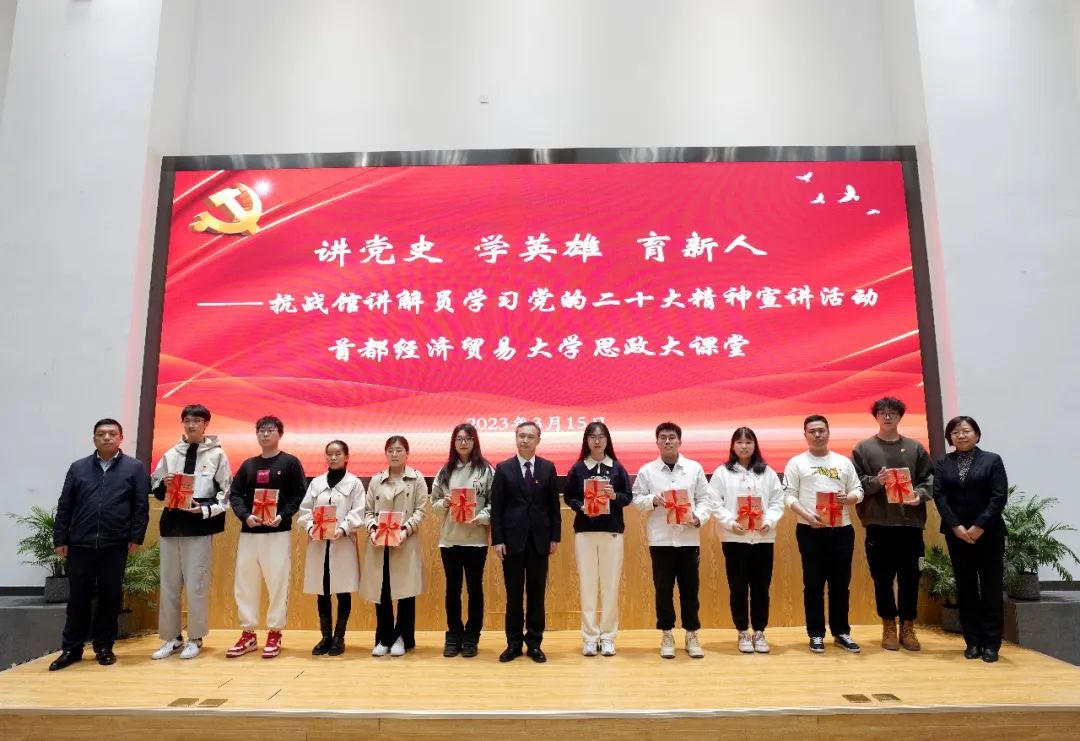
After the publicity, the school leaders accompany the leaders of the Anti-Japanese War Museum and members of the publicity group to visit the School History Museum.
